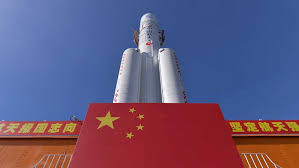
China’s innovation programs have cause concern as a front for industrial espionage. Its ambition to become a global leader in technology and innovation has led to the establishment of a sophisticated network of offshore innovation bases. These bases, launched as part of the country’s broader “national rejuvenation” strategy, serve as hubs for acquiring advanced technologies, cultivating talent, and accelerating economic development. However, concerns have grown over their dual-use nature, with allegations of corporate and technological espionage casting a shadow over these initiatives.
Offshore Innovation Bases: A Strategic Initiative
Since 2015, the People’s Republic of China (PRC) has been actively developing “overseas talent offshore innovation and entrepreneurship bases.” As of 2024, there are 30 such bases strategically located within high-tech development zones across China. These bases are designed to collaborate with leading global universities, research institutions, and multinational corporations, positioning China as a center for technological progress.
Notable examples include the Suzhou Industrial Park and Beijing’s innovation hubs, which aim to attract international expertise and transfer cutting-edge technology. By fostering partnerships with academic institutions and high-tech enterprises, these bases not only enhance local economies but also contribute to China’s goal of reducing its reliance on foreign technology.
Leveraging Universities and Exchange Programs
Central to China’s innovation strategy is its use of academic and cultural exchange programs to attract international students and researchers to its innovation ecosystem. Through initiatives such as the Thousand Talents Plan and Confucius Institutes, China has successfully recruited thousands of scientists, engineers, and technologists to contribute to its research and development goals.
However, these programs have also drawn criticism and scrutiny from Western governments. Reports suggest that some students and researchers linked to these initiatives have engaged in intellectual property theft and unauthorized technology transfers. A U.S. Senate investigation in 2019 revealed that Chinese researchers participating in talent programs were required to sign agreements pledging to prioritize China’s interests and share any scientific discoveries made during their work abroad.
Corporate Espionage and Intellectual Property Theft
- The brains behind Matavire’s immortalisation
- Red Cross work remembered
- All set for inaugural job fair
- Community trailblazers: Dr Guramatunhu: A hard-driving achiever yearning for better Zim
Keep Reading
China’s offshore innovation bases and related talent programs have been implicated in cases of corporate espionage. Authorities in countries like the United States and Australia have uncovered instances where Chinese students or visiting scholars allegedly accessed sensitive corporate data and advanced research under the guise of legitimate collaboration.
In some cases, multinational corporations partnering with Chinese innovation bases have reported unauthorized duplication of proprietary technologies. These activities are often linked to broader state-sponsored espionage efforts aimed at bolstering China’s competitive edge in critical sectors such as artificial intelligence, biotechnology, and aerospace.
A Growing International Concern
The dual-use nature of China’s innovation strategy—combining legitimate technological advancement with covert intelligence gathering—has sparked widespread concern among Western nations. Governments have tightened regulations on academic and technological collaborations with Chinese entities and implemented stricter screening of foreign students in sensitive fields like engineering and quantum computing.
Balancing Opportunity and Risk
While China’s offshore innovation bases contribute to its technological and economic development, their association with espionage and intellectual property theft highlights the need for vigilance. As nations navigate the complexities of globalization and innovation, balancing open collaboration with safeguarding national security remains a critical challenge.
China’s strategy, blending innovation with covert tactics, exemplifies the blurred lines in modern geopolitics, where economic ambition and statecraft often intersect in complex and contentious ways. The world will continue to watch closely as China expands its technological footprint and reshapes the global innovation landscape.











